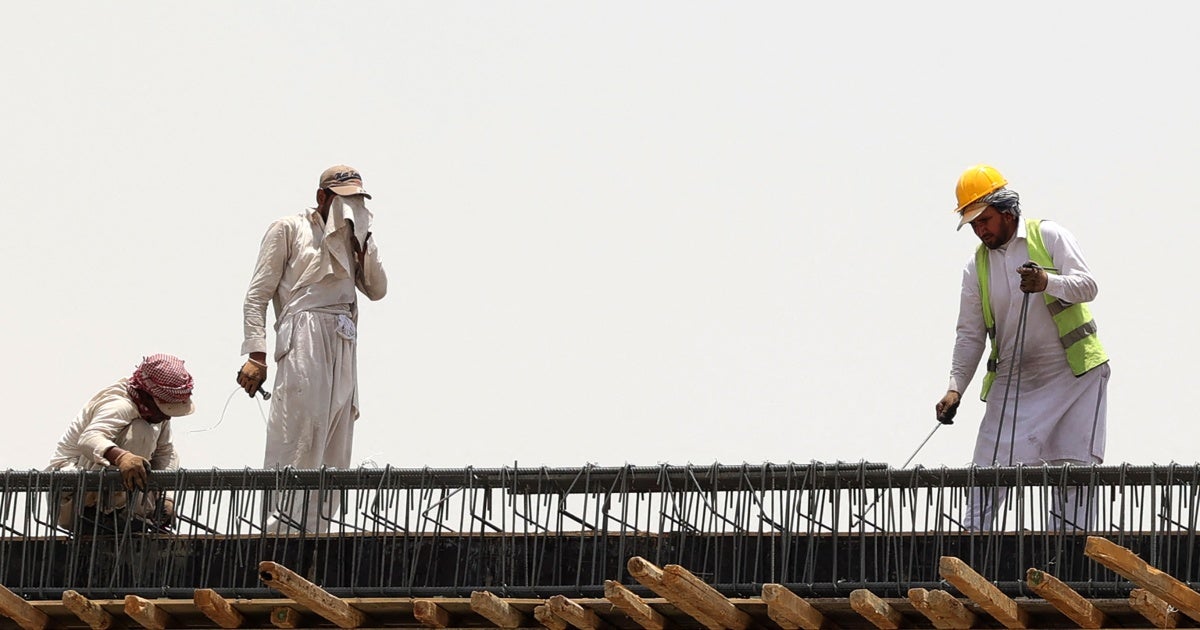In March 2025, Muhammad Arshad, a Pakistani migrant worker in Saudi Arabia, fell to his death while working on the construction of Al Khobar’s Aramco Stadium, a 2034 FIFA World Cup and 2027 Asian Football Confederation Cup facility. Arshad’s death and the loss of his income leaves his family, including three sons under age eight, without their sole line of support.
As we mark World Day Against Child Labor, FIFA’s awarding of mega-sporting events to Saudi Arabia masks a harsh reality true for many families like Arshad’s: When migrant workers die in Saudi Arabia, they can no longer send money home. This and a lack of compensation for deaths can lead to severe economic crises for families.
Saudi Arabia’s migrant workers, who largely come from South Asia and Africa, face disability, illness, death, and other labor abuses like wage theft while constructing FIFA facilities. Human Rights Watch has found that Saudi Arabia does not adequately protect migrant workers against abuses including forced labor, exorbitant recruitment fees, rampant wage theft, and horrific deaths. The majority of deaths are attributed to “natural causes,” a euphemism that masks extreme heat exposure and dangerous worksite conditions and makes families ineligible for compensation.
The loss of a breadwinner compels families to make hard choices, such as taking children out of classrooms and sending them to work. Though some governments of migrants’ countries of origin provide critical assistance such as scholarships to children of deceased workers, it is often not enough.
A Bangladeshi worker’s widow told Human Rights Watch: “To make ends meet, I have put my 14-year-old son to work, and the little money he earns is used for our daily expenses.”
The pattern is chillingly familiar. Thousands of unexplained worker deaths ahead of the 2022 World Cup in Qatar put migrant workers’ children at risk. Though FIFA concluded it “has a responsibility” to compensate families of those deceased workers, they are still waiting.
FIFA needs to take steps to uphold its human rights obligations and minimize risks that migrant workers’ children will be driven into child labor. FIFA should use its leverage for significantly stronger worker protections to prevent worker deaths in Saudi Arabia and beyond. It should call on the Saudi government to ensure that all worker deaths are properly investigated and certified. Finally, FIFA should compensate families of workers who died delivering World Cup infrastructure and provide scholarships for their children.




